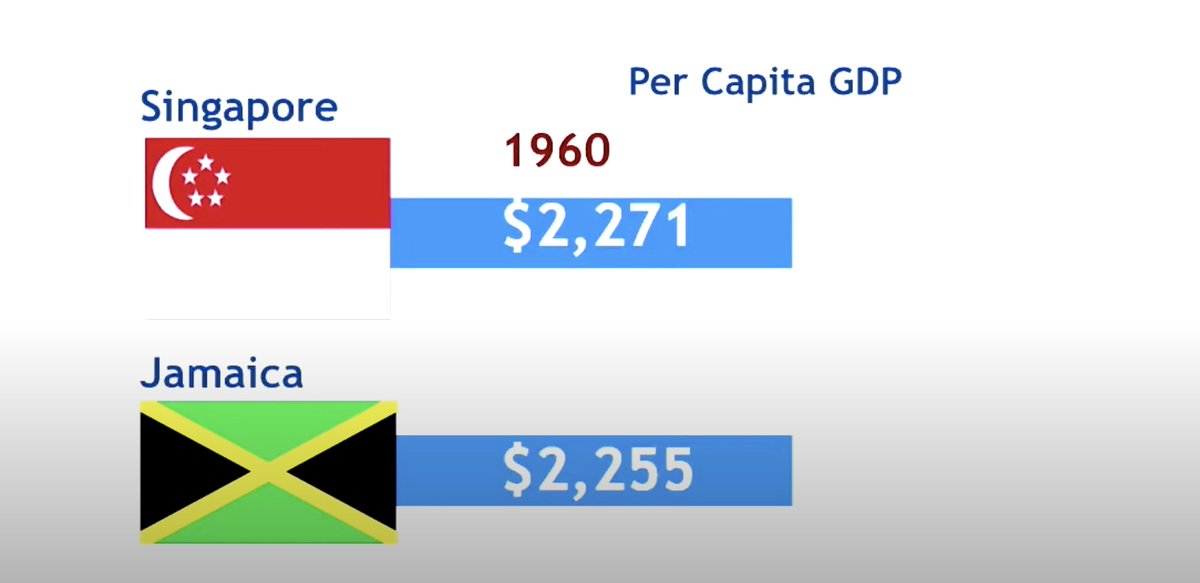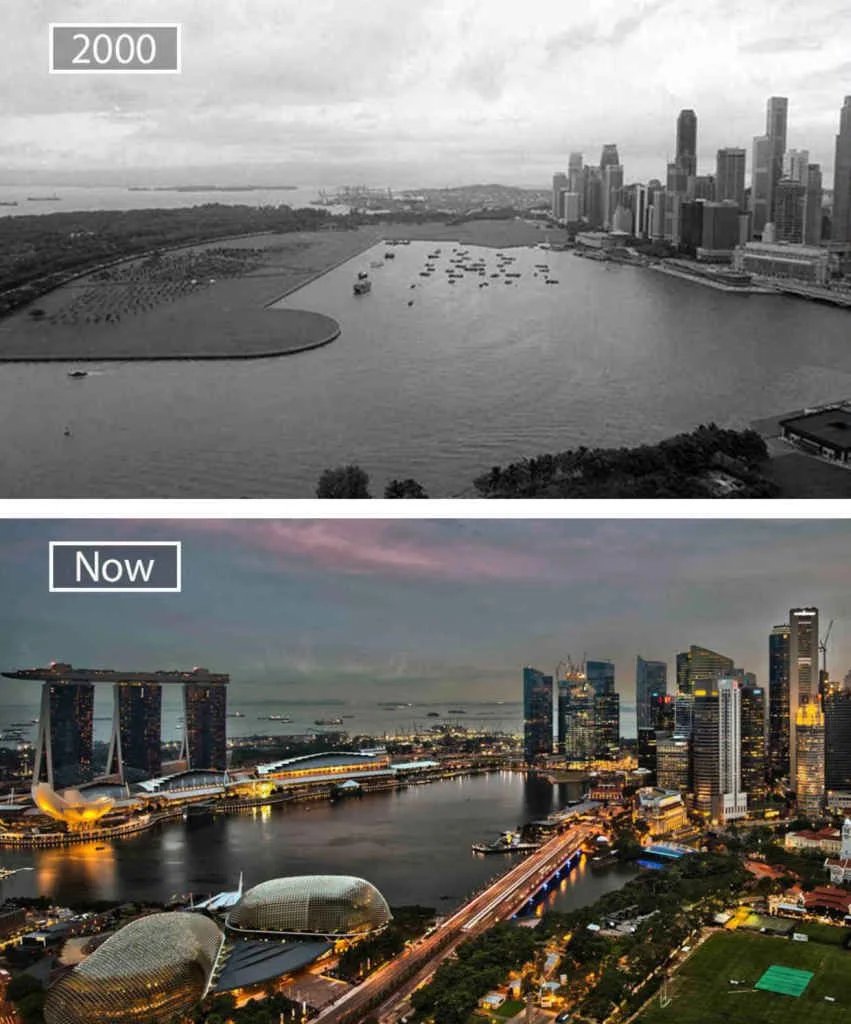
This is great question, and to enter into a discussion such as this one, we have to compare the landscape for US investors over foreigner investors.
Thread (answers from my perspective).
Thread (answers from my perspective).
https://twitter.com/sweatystartup/status/1327588452788019203
If two people are discussing strategies, the conversation becomes more effective when each party understands where the other is coming from.
Example, I put effort into educating myself about the US real estate, but a lot of Americans don’t have a clue about foreign markets.
Example, I put effort into educating myself about the US real estate, but a lot of Americans don’t have a clue about foreign markets.
Therefore, the first point worth discussing is that outside of the US, there is no such thing as government agency debt.
Essentially, we don’t have government bodies writing real estate cheques & guaranteeing them, which makes US debt attractive in some cases.
Essentially, we don’t have government bodies writing real estate cheques & guaranteeing them, which makes US debt attractive in some cases.
Moreover, while North America has long term fixed real estate debt rates — the rest of Anglo Saxon countries and ex-British colonies do not.
In the UK, Australia, New Zealand, Singapore, HK and so forth, the longest period you can fix your mortgage rate is 5 years.
In the UK, Australia, New Zealand, Singapore, HK and so forth, the longest period you can fix your mortgage rate is 5 years.
Not only do we struggle with the ability to fix mortgages long term, but the real estate financing is not built on the back of the spreads with the 10-year Treasury rates.
As an example, when the Treasury yields in the US fall or rise, the US mortgage rates follows it.
As an example, when the Treasury yields in the US fall or rise, the US mortgage rates follows it.
This is only slightly true in Australia or the UK, where as an example we also have very low government bond yields and yet mortgage rates are elevated and construction financing is sky high.
Side note: the opportunity private capital does is turning into lenders over investors.
Side note: the opportunity private capital does is turning into lenders over investors.
Now, there are some Western European countries which have 15 or even 20+ year fixed real estate debt, but these countries are complicated in other ways — including the fact they don’t have common law and instead use civil law.
British common law, which the US also inherited...
British common law, which the US also inherited...
...is by far the most attractive legal system — for us as global investors — to do business in and own property with a view one can rely on the judicial system.
Having said that, we have confidence in the EU legal system as well, so we have done some deals in continental Europe.
Having said that, we have confidence in the EU legal system as well, so we have done some deals in continental Europe.
Moving along, foreigners investing in the US really do not get any tax breaks — especially depreciation benefits as a real estate professional (which a lot of GPs love) nor can we benefit from the 1031 exchange.
Once again, what we can benefit from is being lenders into the US, since the IRS gives us a “portfolio exemption” meaning no withholding tax on interest.
Side note: this isn’t attractive now because there is too much capital chasing too few good deals, with very low returns.
Side note: this isn’t attractive now because there is too much capital chasing too few good deals, with very low returns.
Finally, the US real estate market has very high round trip costs (the cost of buying & selling is expensive).
Your agent commission rates are ridiculous, while in the UK they are 1%. Another example is there are no capital gains taxes in HK, Singapore, some EU countries, etc.
Your agent commission rates are ridiculous, while in the UK they are 1%. Another example is there are no capital gains taxes in HK, Singapore, some EU countries, etc.
Essentially, taking into consideration US investors ability to fix rates long term, their tax benefits & agency debt incentives you guys to hold property — especially with very high round trip costs.
The complete opposite is true in several markets we invest in.
The complete opposite is true in several markets we invest in.
Consider that 85% of Australian population lives in 4 major cities, urbanisation has driven CAP rates to extremely low levels. Naturally, yields are low.
Same is true with many European capital cities. London’s gross yields are very low and debt cannot be fixed like in the US.
Same is true with many European capital cities. London’s gross yields are very low and debt cannot be fixed like in the US.
Therefore, we are far more incentivised to buy low (distressed) and sell high — without the need for the market to appreciate.
Instead, many family offices I talk to either lend at high rates or their edge becomes forced appreciation through construction & improvement of assets.
Instead, many family offices I talk to either lend at high rates or their edge becomes forced appreciation through construction & improvement of assets.
One final thing to add: I spent a lot of time and lived in Hong Kong, a city that is probably known as the most expensive in the world on price/sqft or m2 and for having the most billionaires in the world — many of whom made fortunes in real estate, amongst other industries.
A great lesson exists here, which many Western investors have yet to learn (maybe those in Las vegas did so in 2008).
Even the most in-demand property markets, which suffer from structural chronic shortages can crash.
And HK did so in speculator fashion from 1997 to 2003.
Even the most in-demand property markets, which suffer from structural chronic shortages can crash.
And HK did so in speculator fashion from 1997 to 2003.

But here the best part.
Out of dozens of the richest Hong Kong real estate families and developers, not a single one went bankrupt during the bust from 1997-2003 — which lasted for 6 years and kept going lower, year after year.
Why?
They don't carry large debt loads, if any.
Out of dozens of the richest Hong Kong real estate families and developers, not a single one went bankrupt during the bust from 1997-2003 — which lasted for 6 years and kept going lower, year after year.
Why?
They don't carry large debt loads, if any.
It is pretty interesting to consider that you can make fortunes in the property world, without ever borrowing large amounts.
Of course, real estate debt has its advantages, especially in countries like the USA. But it also has disadvantages, which investors learn the hard way.
Of course, real estate debt has its advantages, especially in countries like the USA. But it also has disadvantages, which investors learn the hard way.
Advantages international investors have:
• focus on lending over equity for 3 reasons: 1) interest is taxed at zero or low rates; 2) rates of return in UK & AU are double or triple that of the US (especially construction finance); & 3) very large downside protection of 25-35%
• focus on lending over equity for 3 reasons: 1) interest is taxed at zero or low rates; 2) rates of return in UK & AU are double or triple that of the US (especially construction finance); & 3) very large downside protection of 25-35%
• • •
Missing some Tweet in this thread? You can try to
force a refresh








